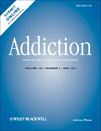Addiction and dependence in DSM-V
ABSTRACT
As preparations for the fifth revision of the Diagnostic and Statistical Manual of Mental Disorders (DSM) are under way, this paper focuses upon changes proposed for the substance use disorders section. It briefly outlines the history behind the current nomenclature, and the selection of the term ‘dependence’ over ‘addiction’ in earlier versions of the DSM. The term ‘dependence’, while used in past decades to refer to uncontrolled drug-seeking behavior, has an alternative meaning—the physiological adaptation that occurs when medications acting on the central nervous system are ingested with rebound when the medication is abruptly discontinued. These dual meanings have led to confusion and may have propagated current clinical practices related to under-treatment of pain, as physicians fear creating an ‘addiction’ by prescribing opioids. In part to address this problem, a change proposed for DSM-V is to alter the chapter name to ‘Addiction and Related Disorders’, which will include disordered gambling. The specific substance use disorders may be referred to as ‘alcohol use’ or ‘opioid use’ disorders. The criteria for the disorders are likely to remain similar, with the exception of removal of the ‘committing illegal acts’ criterion and addition of a ‘craving’ criterion. The other major change relates to the elimination of the abuse/dependence dichotomy, given the lack of data supporting an intermediate stage. These changes are anticipated to improve clarification and diagnosis and treatment of substance use and related disorders.




